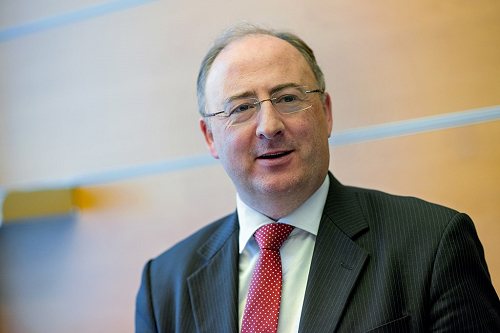EU's 2016 budget: "The priority of this budget will be to boost employment"
Tackling the refugee crisis and boosting employment are two of the most controversial issues in the negotiations for the EU's budget for next year. Parliament wants to allocate more money for this than the member states. MEPs will discuss the issue in plenary on Tuesday 27 October and vote on a position the following day. We asked Portuguese EPP member José Manuel Fernandes, who together with Gérard Deprez is responsible for the EP's position, what is at stake.

José Manuel Fernandes
Parliament's budgets committee proposes a budget of €157.4 billion for next year. How much of this would be used to help refugees and reinforce controls at the EU's external borders?
The European Commission proposes about €1.2 billion for tackling migration, including a series of innovative initiatives such as redistributing refugees between European countries. We have proposed to top this up with another €900 million.
What would be possible to do with this funding?
The priority would be to improve the admission of refugees: asylum seekers will see facilities improve, have their administrative files processed more efficiently, receive language training etc.. At the same time we strengthen operations in the Mediterranean, the exchange of information on migration and security issues between administrations and so on. We will also have to tackle the causes, especially in countries outside the EU. This is why we are proposing to add €260 million for foreign affairs in the budget.
How much money will be used to create employment? Could you give some examples?
This budget's main priority will be to boost employment. If we including cohesion policies, then more than one third of the budget - nearly €50 billion - is directly linked to boosting employment: support for education and training, help to set up your own company, infrastructure projects etc. The Parliament proposes to especially continue initiatives regarding employment for young people.
Then again, nearly all of the European budget is reserved for employment: it supports student mobility (Erasmus+), small and medium-sized companies (Cosme), research and development (Horizon 2020), infrastructure (Connecting Europe Facility), investment (European Fund for Strategic Investments), but also farmers.
What do you expect from the negotiations with the member states?
I expect that negotiations will be difficult because the Council has shown in the past it won't hesitate to go back on its word, or to announce ambitious initiatives without allocating the necessary means to make them possible.
Source: European Parliament
- 293 reads
Human Rights
Fostering a More Humane World: The 28th Eurasian Economic Summi

Conscience, Hope, and Action: Keys to Global Peace and Sustainability

Ringing FOWPAL’s Peace Bell for the World:Nobel Peace Prize Laureates’ Visions and Actions

Protecting the World’s Cultural Diversity for a Sustainable Future

Puppet Show I International Friendship Day 2020

